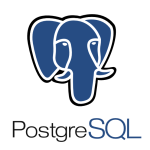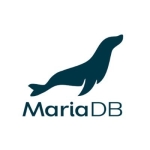We are using MySQL for backend operations since we are a software backend developer. We are using this tool in our backend application for acquiring the data.
We mainly use MySQL for our Relational Database Management System(RDBMS). We are maintaining our customer data in a defined way. We have to create various schema levels. We are presenting the customer data, such as name, mobile number, what was purchased, and what they like or dislike. Once we create the schema, a set of data, we need to maintain the unique constraints.
For example, for customers, we'll assign a unique ID to each record, that will be a primary key. All these SQL constraints we'll use and there should no variance or replication of data isolated. When we perform any update operations, it should not affect any of the data isolated.
We need to take care of many things, such as consistency, isolation, and variability for constructing any database. There are a few more concepts as well, such as normalization and PL/SQL. For example, if I want to run a job at a particular time, the product will use PL/SQL. We are like implementing our coding skills to databases.
Our operations are on-premise. However, we are in the process of moving everything to the cloud.
We have many repositories in one table that we are completing for customers' data that are store product data. There are various pieces of data and data should be in the same format. For this purpose, we are using RDBMS. The data in the repository should be able to be accessed in one place which is Oracle SQL Developer. MySQL can store data for a longer duration as compared to other data solutions, such as MariaDB, which can only store data for one day. MySQL can store data for a longer period of time, and we can have primary and secondary data as well for backup purposes.
MySQL is easy to use, has fast performance, and it is comfortable for end-user to use. The schema level and structure we are using are very simple and easy to understand. Additionally, packaging tool development is straightforward and the data is presented in a way that is very simple to understand.
MySQL can improve some of its functions. However, it is dependent on the use case. For example, if we are having multiple database connections in this tool, and we are performing one operation in one database, it takes a lot of time due to the reason we are selecting and processing the data. When we have a lot of data it takes a longer time. The transaction gets stuck in a queue and if we try to stop that particular transaction, it won't abort until all the selected records have been processed. This sometimes can be a lot of time and it can hold up our live processing of transactions. This product should be able to handle multiple processing at a time.
In an upcoming release, there should be something added similar to EPL. For example, when using the flow diagram, we can create a schema. We have two useful features to add or create the table, but there should be some UI features to allow us to drag and drop to create other schemas. This would be very helpful.
I have been using MySQL for approximately four years.
I have found the development tools to be highly stable in MySQL.
The scalability of MySQL is very good. There are no barriers to it. It can be used and accommodated in any particular language. We can use it with Java and Python.
We have almost everyone in my organization using the solution. We have developers and support teams all using it. If my organization has 1,000 people, almost 900 people out of them were using the service.
I have evaluated MariaDB.
We use a solution called Jenkins to help us with all the pipelines. The pipelines are all created and configured in the Jenkins. We are in a distributed server architecture and the full process can take approximately 20 minutes for one server.
If we have a large amount of data we have to take care of it. If this particular data is not used over the years, we have to make maintenance decisions on it after we use it. The developer administrator and the team will be responsible.
We are using the licensed version of MySQL.
I would advise others that this is a useful tool.
I rate MySQL an eight out of ten.




















